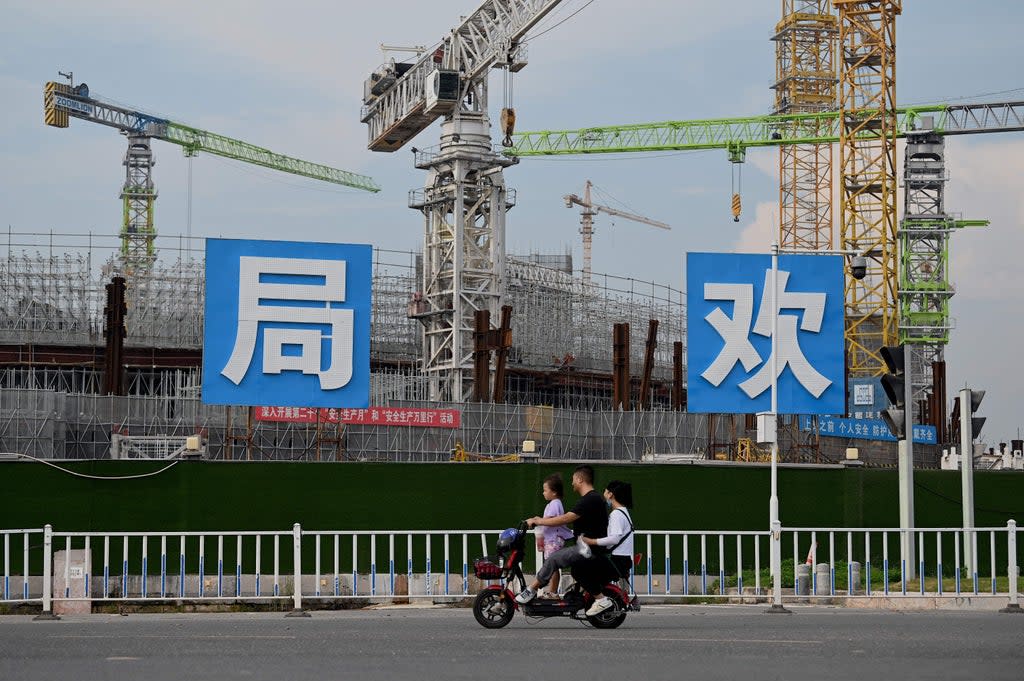Chinese property developer loses $1bn in market turmoil over Evergrande debt concerns

A Shanghai-based real estate developer lost a billion-dollar worth of fortune within hours of trading, amid market turmoil caused by fears of a collapse of the Chinese giant Evergrande.
Zhang Yuanlin, chairman of Sinic Holdings Groups which deals in real estate developments, saw his net worth drop from $1.3 billion Monday morning to $250.7 million by the afternoon, according to Forbes. His company’s stock took a tumble of over 87 per cent to hit a low of 0.50 Hong Kong cents before it was forced to halt trading.
Mr Zhang was featured on Forbes’ Billionaires list of the world’s richest people this year and his company Sinic Holdings is an investment holding company, which along with its subsidiaries, is principally engaged in property development and property leasing, according to Reuters.
However, China’s real estate market is experiencing major vulnerabilities, which is spooking investors. That triggered a selloff in Asian and global markets this week with Refinitiv data reporting a cumulative $2.2 trillion value wiped off the market capitalization of world equities.
The fears were triggered by the prospect Chinese real estate giant, Evergrande, may default on an interest payment of $84m (£61m) this Thursday.
Evergrande is one of China’s biggest real estate company and also the world’s most indebted real estate developer - with obligations of more than $300bn (£217bn). The company has been unable to find the cash to pay off its debt or interest and market experts have predicted its collapse if Beijing doesn’t step in to rescue it.
Evergrande’s debt woes were exacerbated when Beijing imposed new rules last year cracking down on borrowing from real estate developers, placing limits on mortgage lending and caps on rents in big cities. The company initially offered discounts on its properties to continue sales and ended up in heavier debts.
The investors have also protested in front of its head office asking for refunds of their money.
A collapse of a giant like Evergrande is expected to hit the Chinese economy badly, due to its dependency on the real estate market, but also has wider ramifications for the global economy.
Read More
Goldman Sachs cuts China growth outlook amid power crisis
US siblings barred from leaving China for three years return home after Huawei deal
Mysterious China power crunch sees potentially millions of homes in the dark


